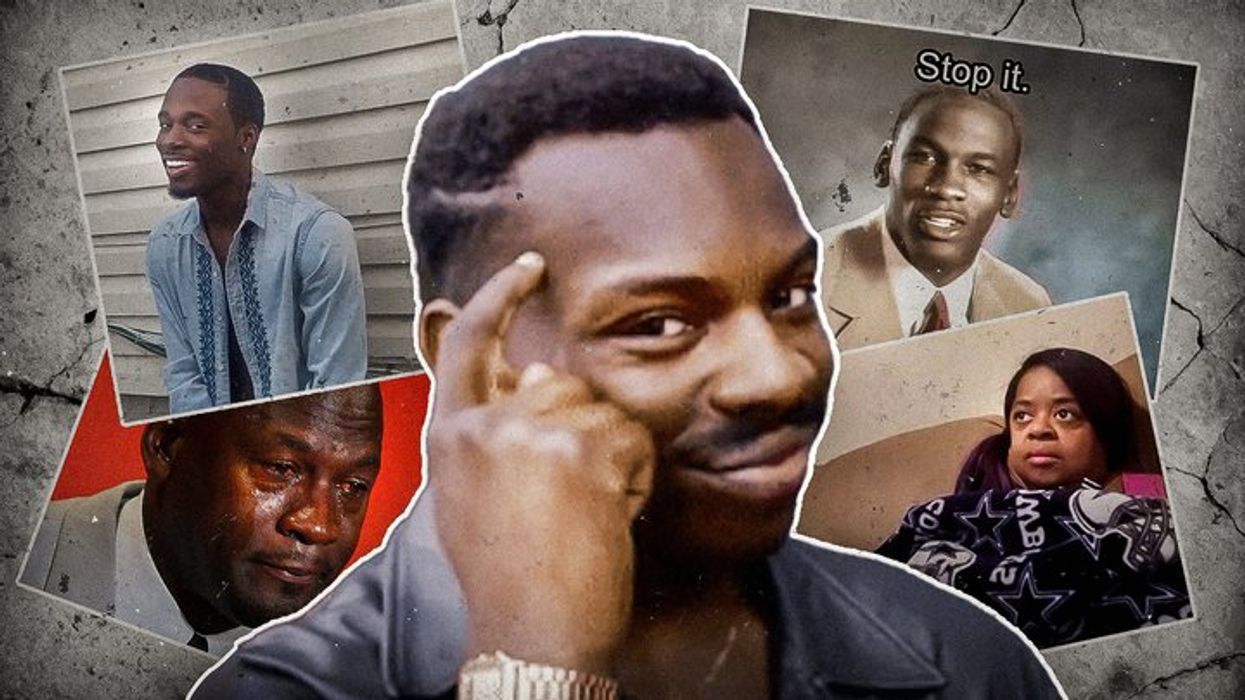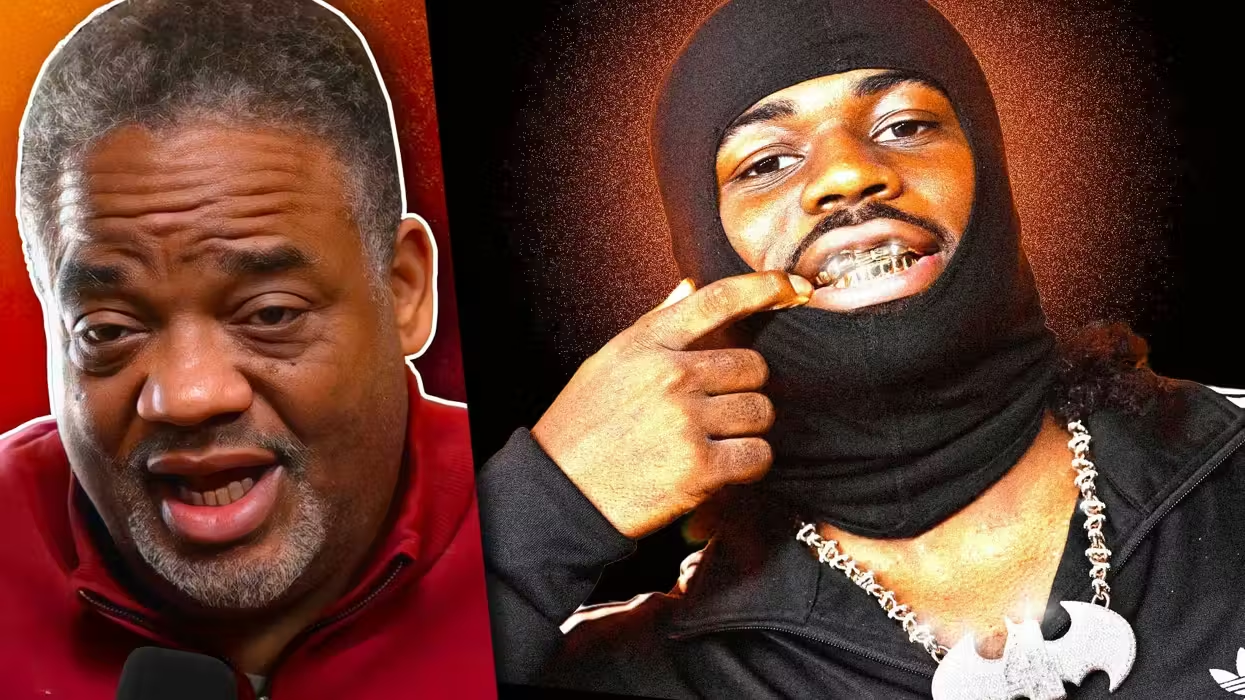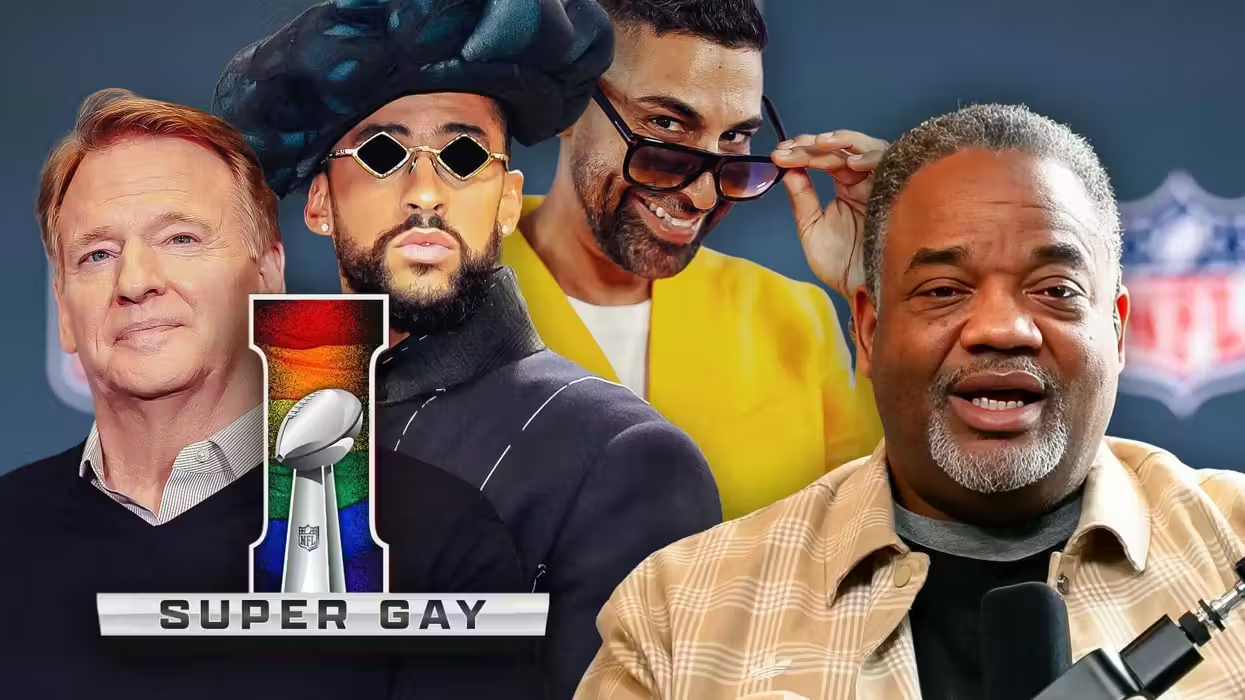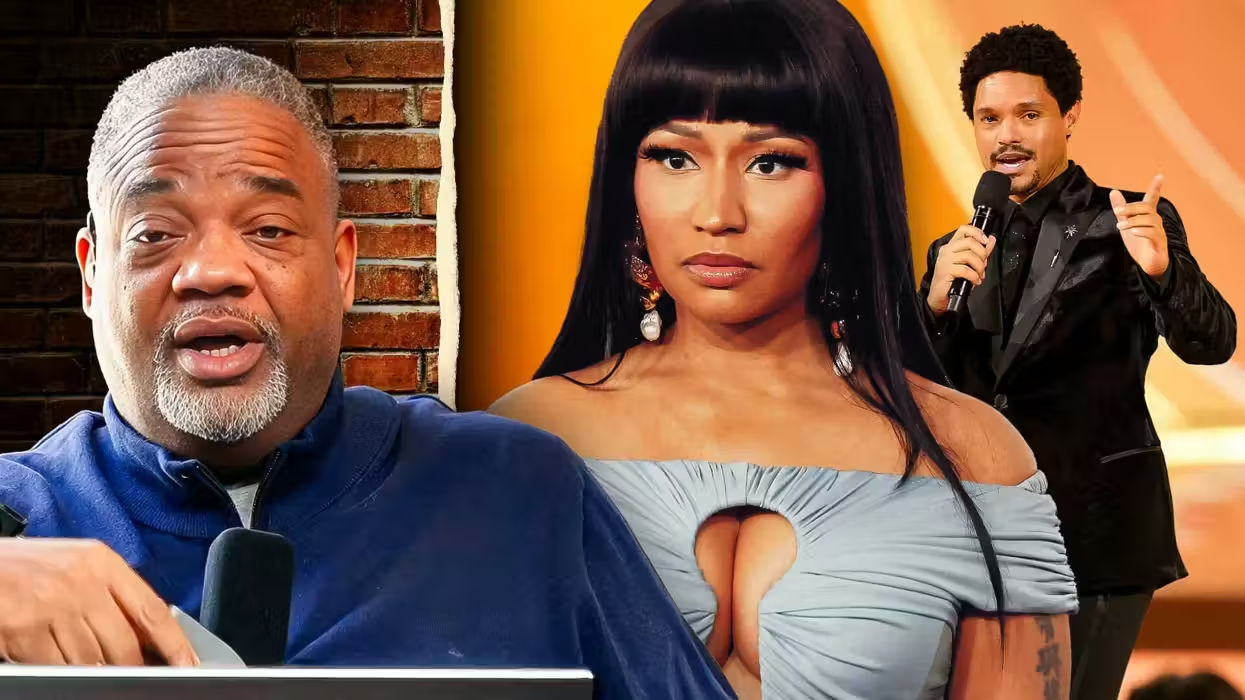
© 2026 Blaze Media LLC. All rights reserved.
Squires: Race writers traumatized by 'digital blackface' bring nothing to the public square except performative blackness
March 28, 2023
The Colin Kaepernick of CNN has exposed one of the most insidious forms of racism affecting American culture today: white people sharing crying Michael Jordan memes.
Anyone who thinks that is a ridiculous claim likely doesn’t recognize that funny memes in under-melanated hands are acts of terror known as “digital blackface.” John Blake, senior writer at CNN, calls "digital blackface" “a practice where White people co-opt online expressions of Black imagery, slang, catchphrases or culture to convey comic relief or express emotions.”
Blake, a man who writes frequently about race, religion, and politics for "The Most Trusted Name in News" asserts that "digital blackface" is wrong because it is a “modern-day repackaging of minstrel shows.” The irony of this explanation being placed above a picture of RuPaul, America’s most popular drag queen, was not lost on me. Blake believes that white people putting on makeup to exaggerate black features and dressing like caricatures of black people is a grave evil, but he sees no issue with men doing the same to women.
Blake also believes that white people who share GIFs of Sweet Brown are being insensitive to her pain. Brown’s declaration that “ain’t nobody got time for that” went viral over a decade ago after her apartment complex caught fire. Oddly, Blake has no issue with black people using Sweet Brown memes. Apparently, memes are the new “N-word,” always malicious when done by white people (e.g., reciting lyrics) and always acceptable when done by black people (e.g., threatening harm), regardless of the specific context.
This is what happens when the people paid to deliver insightful analysis of the culture can only see the world through a narrow, clouded set of black and white lenses.
Blake is a card-carrying member of the “Afristocracy” – the progressive elite in black America composed of politicians, pundits, performers, professors, and preachers.
The role of journalists and commentators in the Afristocracy is to function as a “media laundering” operation that “washes” unpopular ideas on behalf of activists, politicians, corporations, and entertainers on the left. On virtually every major issue, black pundits and commentators in print media or on cable news shape and amplify the preferred narrative of the Democratic Party. They also produce a steady diet of bland, predictable analysis that adds very little substance to our political discourse.
This has had a particularly devastating impact on black readers of the most influential publications. Outlets like the Root and the Grio publish silly pieces about the “5 Types of Becky” and the “6 Kinds of Woke White People” on a regular basis. That type of commentary is what you get when the people you claim to dislike become the center of your existence. Black writers who demand that white allies put up BLM signs, then castigate them for performative activism respond to “whiteness” like pagans worshiping the sun – desirous of its light, fearful of its heat, and completely unable to sustain life without it.
What the scribes of the Afristocracy are not doing is bringing clarity to the complexities of life that contribute to changes in politics and culture. Ibram X. Kendi is a professor who moonlights as a political pundit. He is also the person who attributes all differences in outcomes between ethnic groups to racist policies. There are many problems with this line of thinking. Oversimplificaiton of very complex social, economic, and personal factors is one. But so is Kendi’s inability to define “racism” in a non-circular fashion.
This is the crime of race writers who only see black and white. They don’t make arguments. They recycle talking points that seem impressive because they are never challenged.
They use overheated rhetoric because their arguments are weak. Men like Bakari Sellers stretch and distort terms like “racist” in order to compare Governor DeSantis to white supremacists. The residents of Florida should be ecstatic they didn’t elect Andrew Gillum governor in 2018, but to Sellers, a bisexual drug addict would have made a better executive than the man who didn’t allow black history to be hijacked by people who want to promote queer studies and Black Lives Matter in the classroom.
In a show of stunning cognitive dissonance and emotional manipulation, Kevin Blackistone of the Washington Post tied Tony Dungy's appearance at the March for Life to anti-abortion extremists, racist politicians, and Donald Trump. Blackistone, a supporter of Colin Kaepernick’s on-field protests, wondered how the NFL reacted to Dungy’s decision to “stand before anti-abortionists on a podium frequented by white supremacists and zealots.”
My problem with the pundits in the Afristocracy is that they produce mediocre work. Their writing and commentary reveal an underdeveloped worldview that struggles to explain any social phenomenon that can’t be blamed squarely on the left’s most predictable boogeymen: racism, sexism, homophobia, transphobia, fatphobia, and xenophobia.
Their intellectual incuriosity leaves their readers ill-informed and vulnerable to manipulation from canny political operators and self-serving politicians. The left uses journalists and pundits to make black people fear everything, including voting laws in Georgia (aka “Jim Crow 2.0”), taking the COVID shot, not taking the COVID shot, not wearing a mask to the gym, the loss of LGBT indoctrination in schools, and the black babies who will be born because Roe was struck down.
One of the reasons Democrats have a stronghold in the black community is because progressive Afristocrat pundits will spin every aspect of the left’s agenda as a win for black people. These are the types of people who live in secure luxury condominiums while promoting the “defund the police” movement in cities where nearly all homicide victims are young black men.
But there is another reason we should be skeptical of the modern race merchants. In addition to his CNN commentary, John Blake is also the author of “More Than I Imagined: What a Black Man Discovered About the White Mother He Never Knew.” Like Kaepernick, it seems as if he is using his public platform as a personal diary to work out deep issues related to racial identity.
He may not dress like a 1960s Black Panther like the former QB, but that doesn’t mean his views on race aren’t a form of overcompensation. This isn’t solely a matter of biracial identity, either. It impacts anyone whose personal experiences do not align with the perception that authentic blackness is correlated with poverty, deprivation, and oppression.
This is why many black people who grew up in solidly middle-class neighborhoods, who were accused of “acting white” for doing well in school, or who have white spouses also use their pens and platforms to engage in performative blackness. I feel sorry for people who craft a black identity out of Air Jordans, cornrows, and imagined racial oppression, but they need to be in church or counseling, not shaping minds on the most important issues facing our culture today.
Want to leave a tip?
We answer to you. Help keep our content free of advertisers and big tech censorship by leaving a tip today.
Want to join the conversation?
Already a subscriber?
Contributor
Delano Squires is a contributor for Blaze News.
DelanoSquires
more stories
Sign up for the Fearless newsletter
By signing up, you agree to our Privacy Policy and Terms of Use, and agree to receive content that may sometimes include advertisements. You may opt out at any time.
Related Content
© 2026 Blaze Media LLC. All rights reserved.
Get the stories that matter most delivered directly to your inbox.
By signing up, you agree to our Privacy Policy and Terms of Use, and agree to receive content that may sometimes include advertisements. You may opt out at any time.







